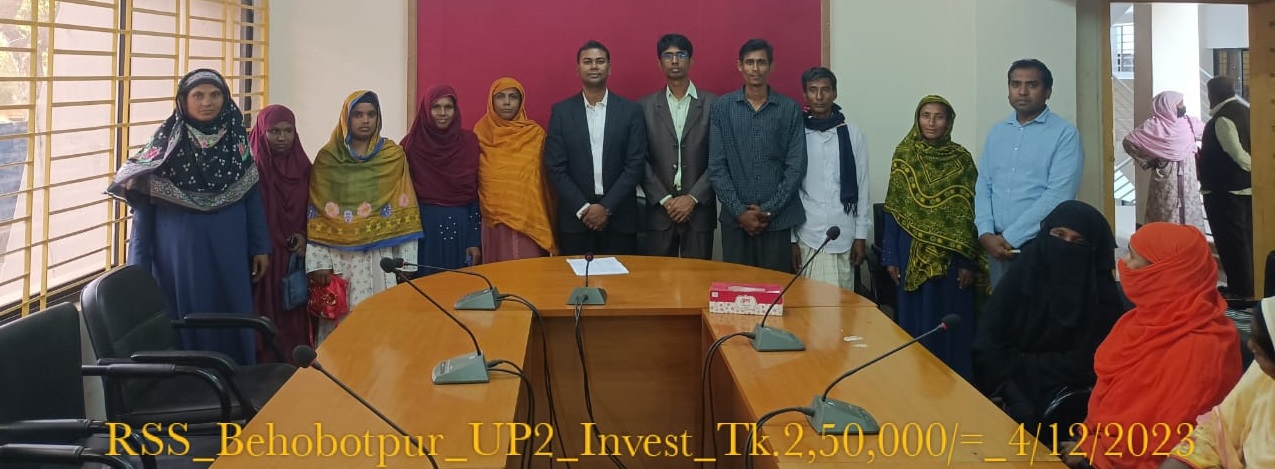-
-
Home
- About Us
-
Our Services
Downloads
Training & Opinion
Inspection
-
Higher Offices
Divisional/Upazila Offices
Department/ Division/ Ministry
- e-Services
-
Gallery
Photo-Gallery
Video-Gallery
-
Contact
Official Contact
Contact Map
- Opinion
The Hijra community represents a minor proportion of Bangladesh's total population. Historically, this community has been impoverished and backward. For this reason, the preservation of the fundamental rights of these people and ensuring social justice for them as well as ensuring their socio-economic development, Hizra livelihood development program has been introduced in 2012-13. Later, the program was expanded to 21 districts for the 2013-2014 fiscal year. Hijra allowance, education stipend, and training programs have been introduced in at 64 districts in Fiscal Year 2015-16. According to a preliminary survey conducted by the Department of Social Services, there are around 11,000 transgender individuals in Bangladesh. The government of Bangladesh acknowledged the Hijra community as the "Hijra gender" on January 22, 2014. The allowance and education stipend of this program has been transferred to the beneficiary's mobile phone through the G2P system beginning in fiscal year 2021–2022.
Objectives specific to the program
1) Identification and issuing of identity cards to transgender individuals;
2) Providing of educational grants for transgender students' education and development.
3) Empowerment of Hijra youth through training and engagement in income-generating activities;
4) Socio-economic development and social security provision of the elderly Hijra population;
3) Empowerment of Hijra youth through training and engagement in income-generating activities.
Activities
To strengthen the standard of living of the Hijra community, the following actions are taken:
1) Identification and issuing of identification cards for transgender individuals;
2) Disbursement of special allowance of 600 taka per month to destitute and poor hijras aged 50 or older.
3) Provision of an education stipend of 700 taka per month at the elementary level, 800 taka per month at the secondary level, 1000 taka per month at the upper secondary level, and 1200 taka per month at the higher level;
4) Providing training, monetary aid, and income-generating activities for working Hijra individuals;
5) Payment of Taka 10,000 as a one-time cash support upon completion of training.
Implementing Authority
With the assistance of the departmental social service office, the district social service office, and the upazila and municipality social service offices, as well as the cooperation of the departmental, district, and upazila administrations and public representatives, this program's special allowances, education stipends, and training activities are being implemented.
Program implementation policies
Hijra community living standards implementation policy 2013
Strategies for carrying out activities
By electronically or directly verifying the information of the Hijra person in the Management Information System (MIS) of the Department of Social Services in accordance with this policy, a list of Hijra beneficiary is compiled, and the special allowance or education stipend is transferred to the mobile account/agent banking account via EFT on the G2P system.
Training for the enhancement of the quality of life based on commercial activity
Due to social inequality, the Hijra community is self-sufficient and creating opportunities for a normal life based on equal rights and equality in society. The reintegration program is administered by identifying the working Hijra community and providing them with training in skill development based on local needs. The objective of skill development training is to engage the target population in income-generating programs in order to improve their standard of living and empower them to become independent. According to the training module, the targeted Hijra community receives basic skill development training, formal psychosocial counseling, basic awareness raising training, and refreshers training through the City Social Service Office of the Department of Social Services, under the supervision of the District and Upazila Committees, and the trainees receive a non-refundable financial assistance of Tk 10,000 after the training. The training modules include Haircutting, Beautification, Driving, Computers, Sewing, Cutting, Blocks, Batik, and Handicrafts, as well as other trades determined by local demand.
Contact
উপজেলা: পীরগঞ্জ, জেলা: রংপুর, বিভাগ: রংপুর।
ইমেইল যোগাযোগ/email: usso.pirganj.rangpur@dss.gov.bd
ফেসবুক যোগাযোগ/facebook: www.facebook.com/usso.pirganj.rangpur
টেলিফোন/Phone: 02589977636
ম্যাপ যোগাযোগ/map: Just click
Planning and Implementation: Cabinet Division, A2I, BCC, DoICT and BASIS







